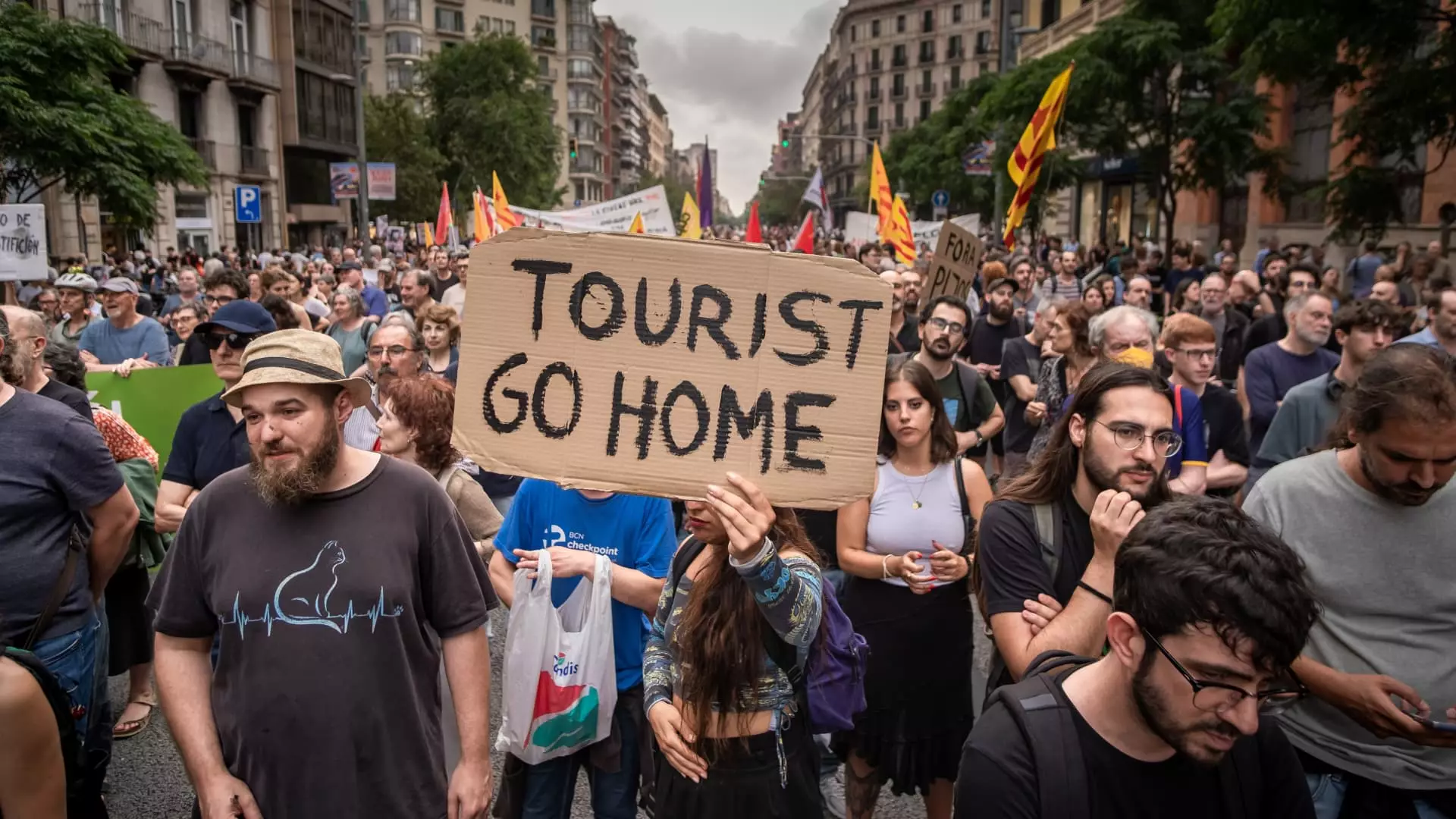The issue of mass tourism in Europe has become a growing concern, particularly in cities like Venice and Barcelona. UNESCO’s Peter Debrine has warned that if European officials do not address the negative effects of mass tourism on residents, protests in Spain and other countries will likely spread. He emphasized the importance of civil society in bringing about change, as elected officials need to respond to the desires of their constituents. A prime example of this was the banning of large cruise ships in Venice in 2021, which came after residents took to the streets to voice their concerns. While the measure helped the structural and environmental integrity of the city, tourists continue to flood its narrow passageways.
Barcelona is another city that has been heavily impacted by mass tourism. A 2023 survey by the City Council revealed that the number of residents who view tourism as detrimental to the city is on the rise. Debrine mentioned that Barcelona has reached a tipping point, but also highlighted that there are potential solutions to the problem. One suggested approach is to prioritize “quality over quantity” tourism, focusing on attracting big-spending travelers rather than mass tourists. During the Covid-19 pandemic, many destinations shifted towards this strategy due to safety concerns.
One of the key concerns associated with mass tourism is the behavior of tourists. Residents in cities like Amsterdam have long complained about issues such as excessive drinking, littering, and disruptive behavior. In response, the city has implemented policies to address these problems, including campaigns aimed at discouraging certain types of travelers. Similarly, Barcelona is considering implementing measures to encourage “tourism degrowth,” such as higher tourism taxes and restrictions on cruise ships and short-term rentals.
While there are calls for government intervention to curb mass tourism, travelers also play a role in addressing the issue. Debrine emphasized the importance of being conscious in travel decisions and suggested the concept of “mirror cities” as a potential solution. By encouraging tourists to explore lesser-known destinations like Tarragona, the burden on popular tourist hotspots like Barcelona could be reduced.
Overall, the negative effects of mass tourism in Europe are becoming increasingly evident, and proactive measures need to be taken to address these issues. By striking a balance between the interests of residents and travelers, cities can work towards a more sustainable and harmonious tourism industry.

